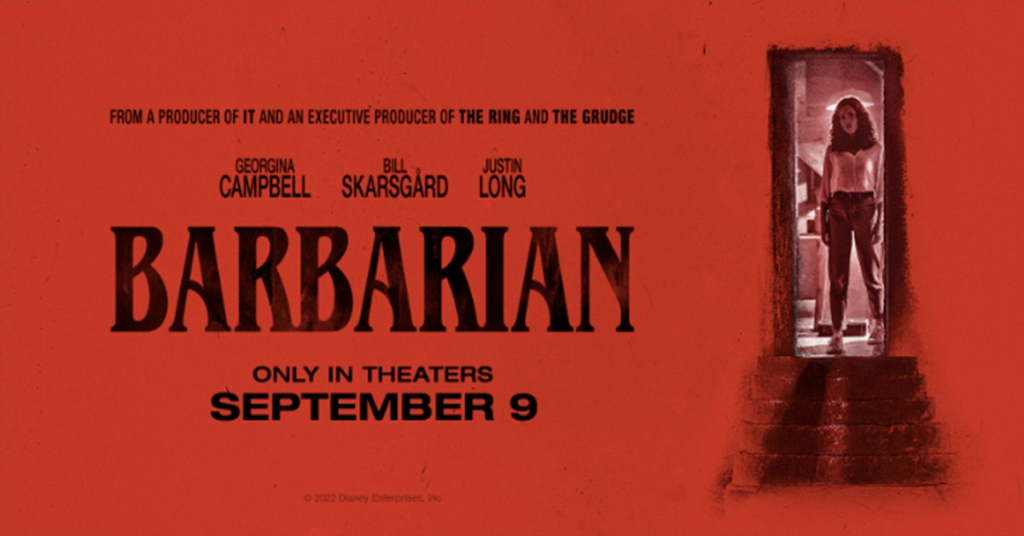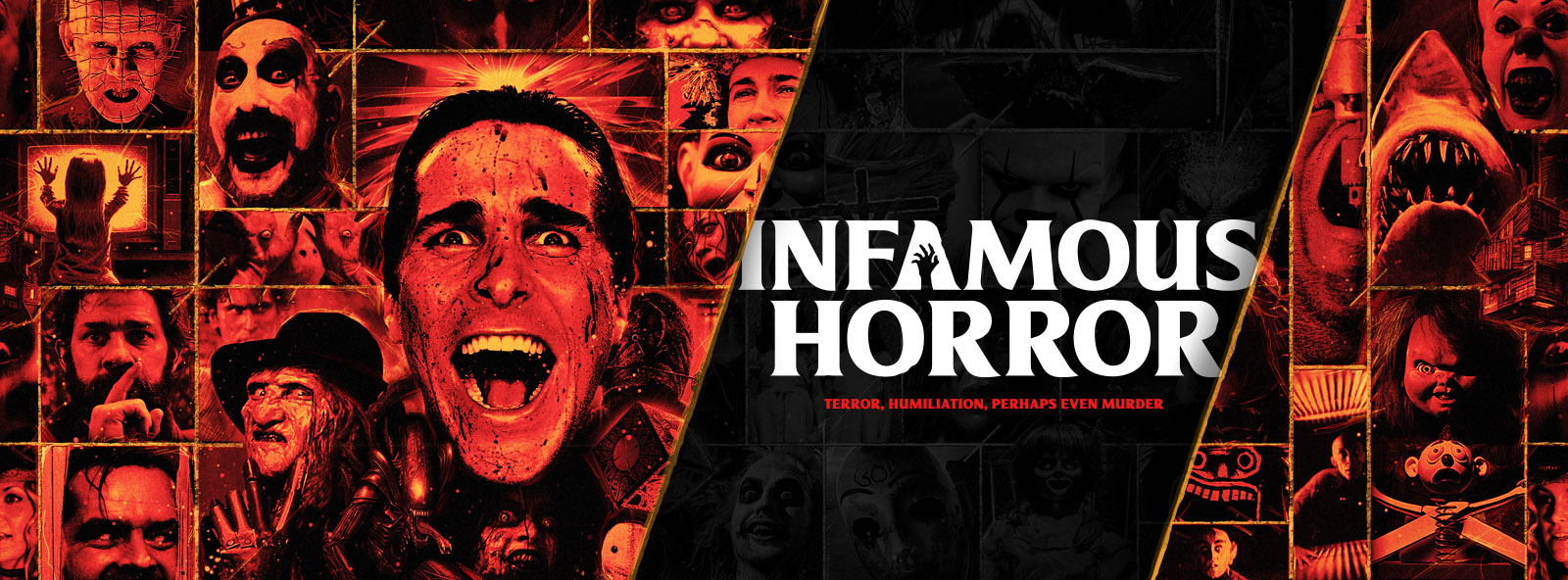
How does one write about the film Barbarian? From the earliest bits of marketing, the film makers and studio have gone to important lengths to give viewers just enough to draw them in and absolutely nothing more. The visceral experience of seeing it for the first time should absolutely be spoiler-free (and in a movie theater if possible). Writer-director Zach Cregger, perhaps best known prior as one-fifth of 2000s sketch comedy weirdos The Whitest Kids U Know, arrives with a debut feature that is as self-assured as any in recent years.
Surprising in both scope and intensity, Barbarian lures the audience in with a seemingly simple setup of young woman Tess (Georgina Campbell) arriving at her airbnb Detroit destination on a dark and stormy night, only to find it double-booked and already occupied by Keith (Bill Skarsgard). In the middle of the night, a door is discovered in the basement that leads to a series of tunnels underneath that hold shocking and terrifying secrets.

That’s all the prior knowledge to be equipped with heading into Barbarian. To spoil what exactly is going on in those underground tunnels and how it affects the characters within wouldn’t necessarily ruin its first-watch experience, but it would fundamentally change and make a large aspect of it, that scary journey down into the unknown for example, a lot less frightening and effective. Barbarian is best left to unfold organically in front of your eyes, the way that it is intended for maximum effect. The first act feels like a masterclass in tension building and misdirection.
Gregger has said he wanted the audience to think about the fact that women deal with so much legitimate fear in social interactions with men that their male counterparts simply do not.
Campbell (Black Mirror) and genre-favorite character actor Skarsgard (Stephen King’s It) play great off of each other trying to both make the best of a bad situation that’s only going to get horrifically worse. In the meantime, the movie gets to really dive into those gender-based social power dynamics. We see seemingly innocuous and well-meaning Keith questioned and rebuked at every chance by Tess, so that when bad things finally do start to happen, the audience can’t even take solace in yelling at the screen.

Tess has dotted every conceivable I and crossed all potential Ts, and still is no safer. Even when women do all the right things they can’t seem to be let off the hook, be believed, to be given safe passage etc. This is true for every day existence let alone when the stakes are nail-bitingly high and true blatant horrors fill the dark. Barbarian expresses societal concerns in the concise and deep-cutting lingering way that only the horror genre seems readily capable of. Justin Long (Drag Me To Hell) gives a career-best performance in a supporting role that takes over the film’s middle entirely.
The change is so severe after the most brutal reveal of the first act that it may take viewers a minute or two to resume normal cabin pressure. It’s a jolting unsettling cut that had the potential to derail the entire movie in less capable hands. Here it seems effortless. It’s hard to say which Gregger nailed more, the screenplay or its execution directing it.
Barbarian truly is an onion of a film, with each new layer revealing something more rotten underneath that doesn’t just thrill the audience but also challenges and makes them think differently about everything that preceded it before sprawling out in wild and unexpected directions. The dark beating heart of Barbarian shines a spotlight on the wasteland that is post-industrial American urban decay.

The Detroit setting is key as the societal collapse of the once lauded city of the mythical American Dream spills out from underneath, swallowing up the city whole with the generational trauma inherent in the evils of America itself. A jump back in time in the third act to a more idyllic, golden period in Detroit (and the country as a whole) shows that evil was always there. Over time, the exterior of Detroit more closely matched our own hidden dark hearts and evil deeds.





